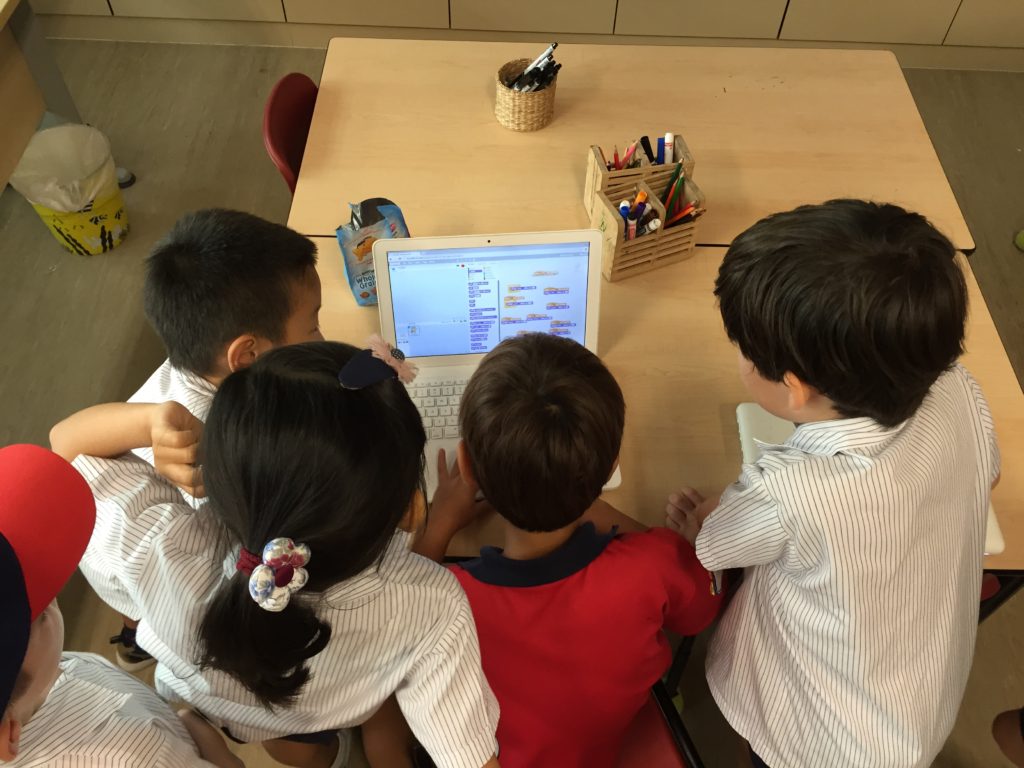Forget what you know about coding. Here’s what you REALLY need to know
June 14, 2017
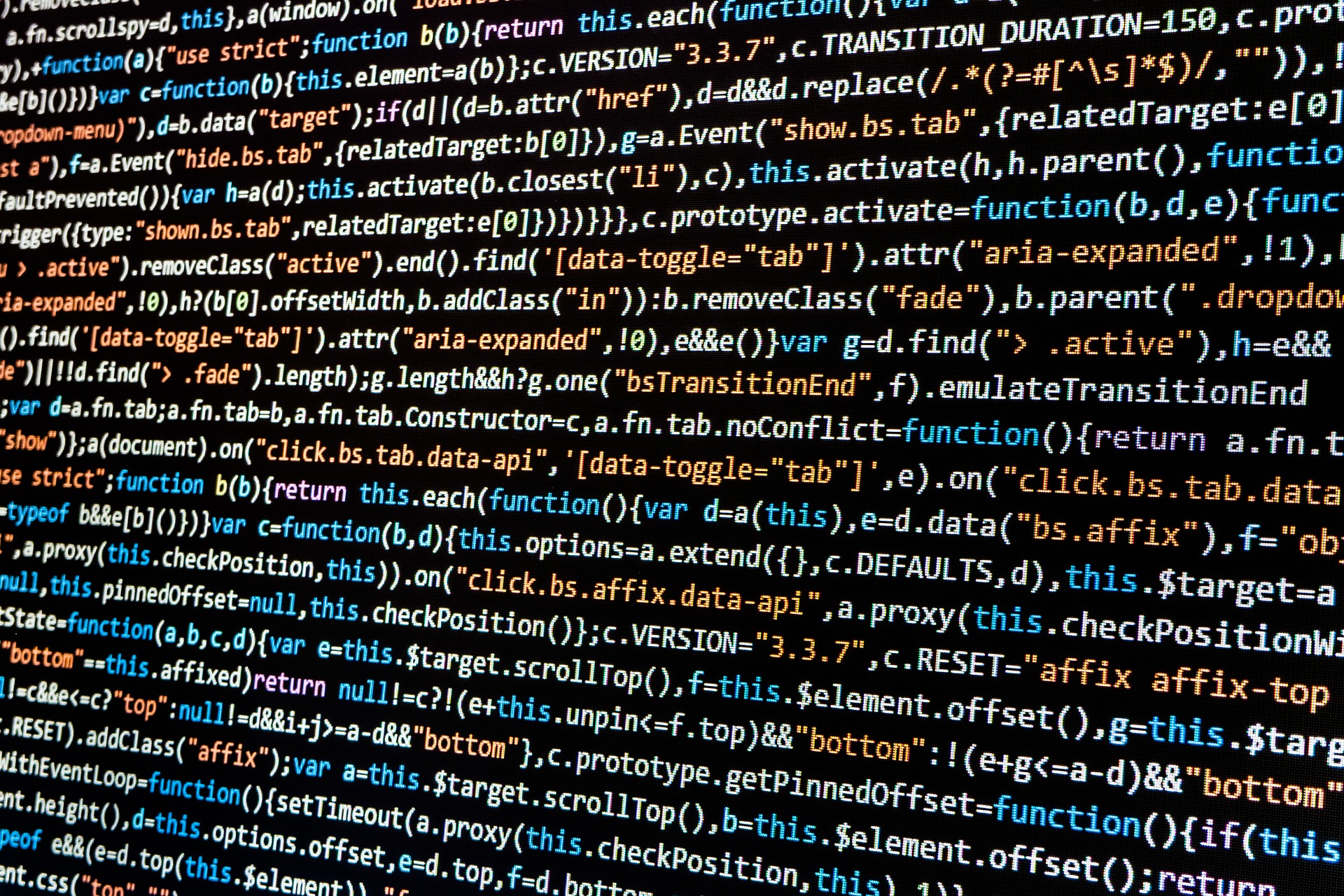
At some point in your childhood, you would’ve probably learnt how to swim, danced ballet or learnt how to play the piano. These were the kind of skills our parents tried to equip us with as kids to enrich our lives.
But it’s the 21st Century and we’re officially in an era where robots in our phones speak to us, cameras can fly and you can send messages from a watch. So the skill that every parent should really be exposing their kids to – is coding! Besides, how do you think all these cool gadgets were invented?
Now before you click away scoffing at yet another article telling you about the importance of coding, hear us out…
Learning how to code isn’t just going to affect jobs of the future, it IS going to be one of the most sought after skills within the next decade.
But don’t just take our word for it. According to Business Insider’s list of the 21 best jobs of the future, Computer and Information Systems Managers, Software Applications Developers and Computer Systems Analysts make it to the top 10!
See what all these top professions have in common? Hint: they all involve technology and a pretty important skill.
Now, I know what you’re thinking. “Sure programming may be easy for math and science whizzes, but what about the rest of us mere mortals? If we don’t get programming, how will kids get it?”
Contrary to popular belief that coding is the equivalent of rocket science, it’s actually a lot easier than you think!
Here’s what you probably think when it comes to coding
Sure it’s important, but it’s boring, geeky and way too complicated!
If you don’t know a thing about programming, the thought of even learning how to code may seem as intimidating as attempting to drive after watching a couple of YouTube tutorials.
So when most people hear the word coding, they picture lines of random numbers and words that make no sense and a guy in front of a computer who probably looks a little something like this:
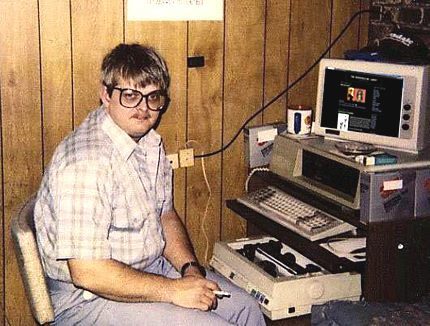
Just like that ancient relic of a computer you see in that picture, your impression of coding needs a serious upgrade because programmers these days can look like this too:
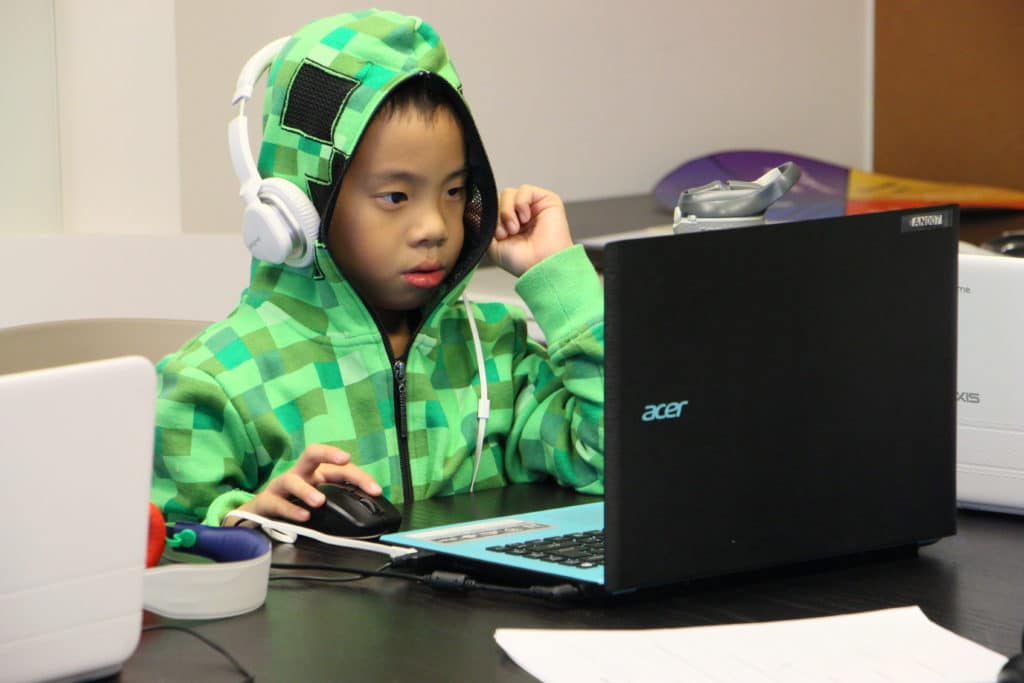
Just look at that level of concentration
Put in its simplest form, coding is just telling a computer what you want it to do by typing in step-by-step commands. When you break it down like that, it doesn’t seem that hard does it?
To give you a glimpse of just how easy programming can be, let’s take a look at this programming language specially developed for kids by the MIT Media Lab.
This is a visual programming language called Scratch.
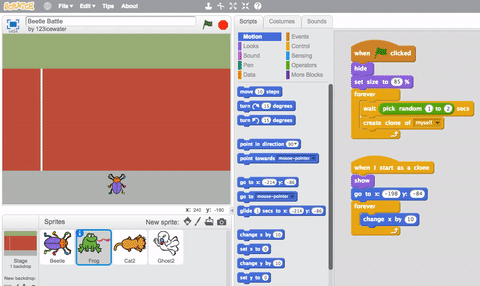
With Scratch, kids as young as 7 can code their own games and learn computational thinking skills by dragging, dropping and connecting blocks together to form sequences.
Kids could create simple games and work their way up to coding complex classics like Mario Brothers!

That’s right, you can actually code Mario Bros with a couple of blocks. And if kids can do it, anyone can.
Coding is only relevant if you want to become a programmer
You would think that coding is only necessary for people who want to become software engineers, computer specialist or something along those lines, but having this skill transcends the tech industry.
In a report by job market analytics firm, Burning Glass, there were up to 7 million job openings in 2015 that required coding skills. They also discovered that overall, programming jobs are growing 12% faster than the market average.
Check out the versatility of job sectors that value coding skills.
- Healthcare
- Aviation
- Engineering
- Data Analysis
- Art and Design
None of these job categories are directly related to the computer science industry, but they all rely on programming in one way or another. This goes to show that even if you’re not planning to venture into the tech industry, being equipped with programming skills is definitely something that is going to affect us all.
Now here’s what you probably didn’t know about programming
Countries all over the world have been introducing coding into their school curriculum

Coding in schools may be a fairly new phenomenon here in Singapore, but it’s long been recognised as an essential subject for kids in the UK.
From as early as 2012, England was one of the first few countries that made coding compulsory for kids ages 5 to 16. Shortly after, countries like the United States, Australia, Israel, Italy and several part of Germany have also been incorporating programming into their curriculum.
In these classes, kids become so much more than just users of technology. They become active creators and inventors.
Programming teaches you what schools can’t
This is how the typical school system works:

Step 1: Learn a whole bunch of stuff
Step 2: Memorise the living daylights out of it
Step 3: Regurgitate and apply the material
Step 4: Repeat till you eventually graduate
The main flaw in this system of learning is that it assess kids on how well they retain information, neglecting how much they’re actually understanding.
Information is spoonfed and learning feels forced. This conditions students to believe that unless they were graded on the something, it wasn’t important. Eventually, they lose the joy of learning when academics become the only thing that matters.
I don’t know about you, but that’s a pretty sad way to learn.
Programming on the other hand challenges you to take your learning into your own hands. It’s about figuring things out for yourself without relying on information that was simply handed to you. There is no such thing as a “textbook answer”. By experimenting through trial and error until your code works, you’ll eventually learn how to build your confidence with practice.
There isn’t one foolproof way to prepare kids for the future, but learning how to code is definitely a start.
So what’s the best way to get your kids ready to take on the world – teach them how to really learn through programming. Because when you learn to code, you learn to learn.
